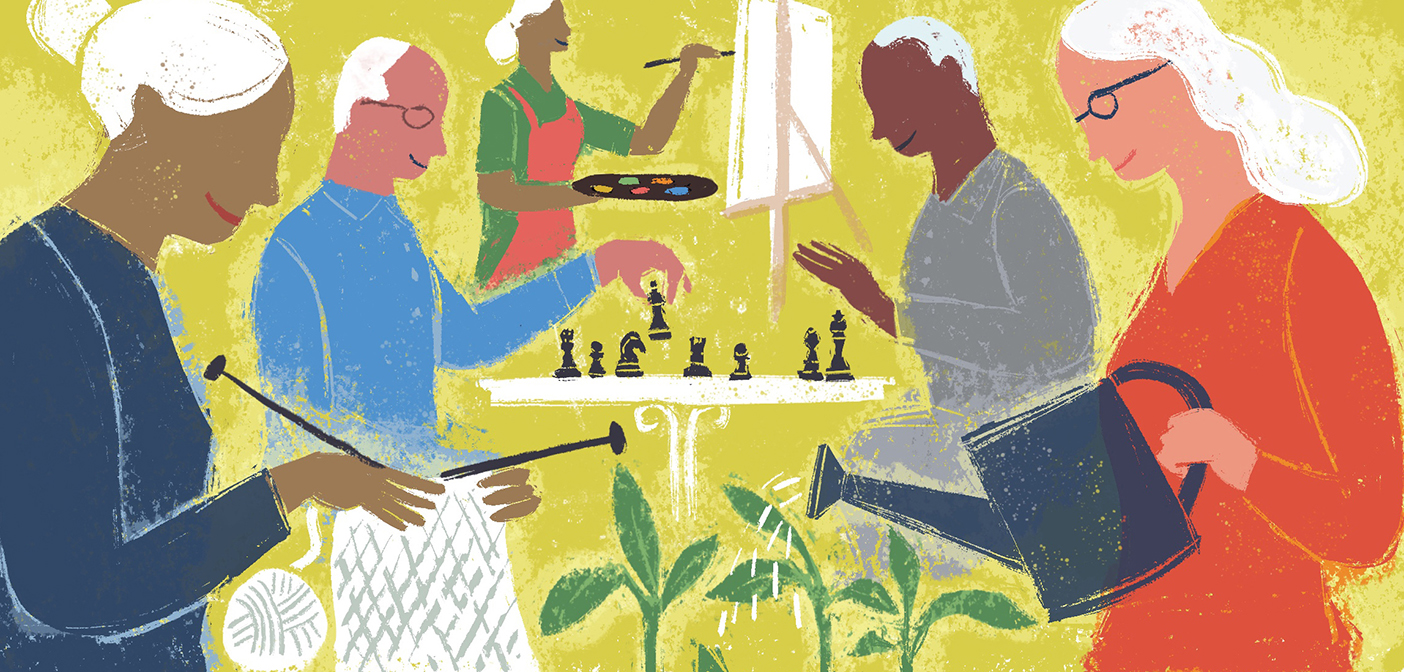ILLUSTRATIONS BY ANDY SNAIR
It turns out that engagement in a favorite activity—knitting, playing bridge or chess, or walking, for instance—may not only be associated with greater functional independence and decreased depression among older people living with dementia (PLWD). For cognitively healthy older persons, it seems to also bring these improvements plus less anxiety and improved memory, Assistant Professor Natalie Regier and Professor Nancy Perrin report with their colleagues in “Engagement in Favorite Activity and Implications for Cognition, Mental Health, and Function in Persons Living with and without Dementia” (Journal of Applied Gerontology).
In cognitively healthy older adults, such engagement can slow physical and cognitive decline and improve well-being. For PLWD, research has shown that activity decreases depressive symptoms, improves overall health and quality of life, and decreases challenging behaviors. Even persons with severe dementia can engage in meaningful activity and make choices as to what these are.
“Research shows that older adults continue to desire meaningful activity irrespective of cognitive status, though a higher percentage of cognitively healthy persons (CHP) attribute greater importance to activities than individuals with possible or probable dementia. It is clear that activity of any kind is beneficial to older adults but less is known regarding how the value ascribed to an activity affects these benefits,” they report. As always, that research continues:
“While our findings highlight the benefits of preferred activity engagement, more research is needed to examine whether activities that are personally meaningful and valued have benefits beyond those associated with general activity engagement, as suggested by prior studies,” they write.

 Forging Policy: How Can Doulas Improve Black Maternal Health?
Forging Policy: How Can Doulas Improve Black Maternal Health? The Returned Peace Corps Volunteer to Nurse Pipeline
The Returned Peace Corps Volunteer to Nurse Pipeline You’re Welcome
You’re Welcome Forging Policy: Associate Dean Jermaine Monk and Education After Affirmative Action
Forging Policy: Associate Dean Jermaine Monk and Education After Affirmative Action My First Teachers in Nursing School Weren’t Nurses
My First Teachers in Nursing School Weren’t Nurses






